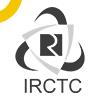US Visa Bulletin June 2025: No Progress for Indian EB-5 Investors and Green Card Seekers

News Synopsis
The US Department of State has officially released the Visa Bulletin for June 2025, and once again, there is no forward movement in the final action dates for Indian immigrants, particularly EB-5 investors and employment-based green card seekers.
Employment-Based Visa Category Updates
EB1 Category
-
For India, the EB1 final action cutoff date remains at 15-Feb-2022.
-
The EB1 category is current for all other countries of chargeability.
EB2 Category
-
The cutoff date for India holds steady at 01-Jan-2013.
-
China sees slight movement forward, with a new cutoff of 01-Dec-2020.
-
All other countries progress to 15-Oct-2023.
EB3 Category
-
India’s cutoff remains at 15-Apr-2013, offering no change from previous months.
-
China moves forward slightly to 22-Nov-2020.
-
All other countries advance to 08-Feb-2023.
EB3 Other Workers
-
India’s cutoff aligns with the general EB3 cutoff at 15-Apr-2013.
-
China’s date remains at 01-Apr-2017.
-
All other chargeability areas see movement to 22-Jun-2021.
EB4 Category
-
The EB4 visa category continues to be marked as Unavailable (U) for all countries, with no changes anticipated until the end of the fiscal year on September 30, 2025.
-
Availability may resume in October 2025, at the beginning of the new fiscal year.
EB5 (Employment-Based Fifth Preference) Unreserved Category
-
For India, the cutoff date remains at 01-May-2019.
-
For China, it stays unchanged at 22-Jan-2014.
-
The category remains current for all other chargeability areas, including the three EB5 set-aside categories:
-
Rural
-
High Unemployment
-
Infrastructure
-
Understanding the US Visa Bulletin
The US Department of State releases the Visa Bulletin each month to indicate the availability of immigrant visa numbers, based on Final Action Dates and Dates for Filing Applications.
These dates guide when immigrant visa applicants must submit documentation to the National Visa Center (NVC).
Applicants whose priority dates fall before the stated cut-off dates in the bulletin are eligible to apply for permanent residency.
Annual Immigration Limits for Fiscal Year 2025
-
Family-Sponsored Preference Immigrants: 226,000
-
Employment-Based Preference Immigrants: Minimum of 140,000
-
Per-Country Limit: 7% of total annual limit = 25,620
-
Dependent Area Limit: 2% = 7,320
Family-Sponsored Visa Preferences Explained
🔹 First Preference (F1):
-
Unmarried Sons and Daughters of U.S. Citizens
-
Quota: 23,400, plus any unused from fourth preference
🔹 Second Preference (F2):
Spouses and Children, and Unmarried Sons and Daughters of Permanent Residents
-
Quota: 114,200, plus unused from the first preference
-
F2A: 77% of F2 – spouses and children (75% exempt from per-country limit)
-
F2B: 23% of F2 – unmarried sons and daughters (21+ years)
🔹 Third Preference (F3):
-
Married Sons and Daughters of U.S. Citizens
-
Quota: 23,400, plus unused from earlier categories
🔹 Fourth Preference (F4):
-
Brothers and Sisters of Adult U.S. Citizens
-
Quota: 65,000, plus unused from previous preferences
The June 2025 US Visa Bulletin once again reflects the ongoing challenges faced by Indian immigrants, particularly those applying under the EB-2, EB-3, and EB-5 categories. With no forward movement in final action dates, Indian applicants continue to experience one of the longest wait times for green cards among all countries of chargeability.
While countries like China have seen slight advancements, India’s priority dates remain unchanged, underscoring systemic backlogs tied to per-country limits and high demand. The EB4 category remains unavailable across the board, and the EB5 unreserved category sees no relief for Indian and Chinese investors.
Although set-aside EB5 categories remain current, most applicants do not qualify under these sub-quotas. As the fiscal year progresses toward its end in September 2025, applicants must closely monitor upcoming bulletins for potential changes.
Until legislative reforms address these disparities, Indian green card hopefuls must remain patient and strategically informed.
You May Like









